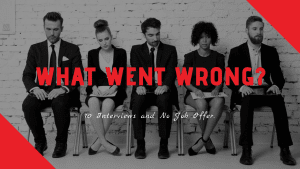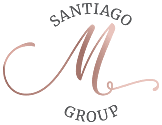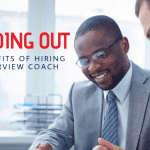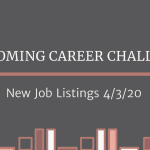10 Interviews and No Job Offer. What Went Wrong?

What went wrong? The interview seemed to go so well! You confidently waited for the phone to ring, checked and refreshed the email inbox. Days and weeks went by and still, you heard nothing. You began to suspect someone else had landed your dream job. It is possible another candidate was better suited for the position or they were promoted from within the company. So, why is it you keep getting interviews but no job offers?
Table of Contents
- Getting job interviews but no offers? Ask yourself these 10 questions:
- 1. Are your salary requirements too high?
- 2. Have you carefully considered your references?
- 3. Did you schedule a mock interview session with a career coach?
- 4. Do you have an in-depth understanding of the company you are applying to?
- 5. Do You Have an Optimized LinkedIn Profile?
- 6. Have you developed your personal brand?
- 7. Does your resume truly represent you as a professional?
- 8. Is your resume customized to highlight relevant skills and experience?
- 9. Do you have a follow-up strategy for each interview?
- 10. Are you exuding enough confidence?
Getting job interviews but no offers? Ask yourself these 10 questions:
1. Are your salary requirements too high?
Employers understand salaries are often negotiable (see our tips for salary negotiation). However, it can send the wrong message if your salary requirements are significantly higher. Potential employers may think you would not be content in the role for very long. They want to hire someone who can have longevity with the company and will be satisfied with available growth and advancement opportunities. Consider checking the median salary for the job title in your geographic area and stick to a salary requirement in that range.
2. Have you carefully considered your references?
How long has it been since you touched base with your professional references? Using a cold contact as a reference is risky. It is critical to personally pre-screen and confirm your references are not just agreeable to, but enthusiastic about helping you further your career. There is nothing wrong directly asking if someone would be willing to provide a positive recommendation. Your professional references are likely to have a better overall tone and response if you give them advanced notice.
3. Did you schedule a mock interview session with a career coach?
No matter how much confidence during job search you have, you probably feel a little nervous when going into a big interview with the stakes being so high. Even if you have prepared your responses to common interview questions, real human conversations bring in an element of unpredictability that can make it difficult to effectively convey the messages you are aiming for. Asking someone you trust to conduct a mock interview can level up your preparedness. This can help ensure you don’t say something wrong or forget to say something important.
4. Do you have an in-depth understanding of the company you are applying to?
Employers want to hire candidates who align well with the vision and values of their business. They also look for someone who would mesh well with the company culture. Thoroughly researching and immersing yourself in the culture prior to the interview will go a long way. You will begin to see yourself through the lens of the employer and you can adjust your interview strategy accordingly.
5. Do You Have an Optimized LinkedIn Profile?
Have you underestimated the power of your online networking presence? Your LinkedIn profile or lack there-of can make or break the decision maker’s perception of your business acumen and professional networking abilities. Treat it with the same care you would your resume because it has the same potential to influence the outcome.
6. Have you developed your personal brand?
You have a unique personality, skillset, and experiential knowledge. Take the time to really reflect on yourself and define what it is you bring to the table and how it appeals to the target market of your industry. Then, ask yourself how well this comes off on every online platform where you have a presence. From your personal appearance to behaviors and mannerisms, everything should present a unified front.
7. Does your resume truly represent you as a professional?
As you read through your resume, does it showcase the top skills you would like to convey to prospective employers? Is it formatted up to date with current standards, e.g. measurable resume metrics? This is where it helps consider a Certified Professional Resume Writer as resume writers can give you a competitive edge.
8. Is your resume customized to highlight relevant skills and experience?
You may be at a point in your career where you are qualified for and interested in a few different types of positions or even different fields. It is crucial to customize your resume and interview strategy to highlight the skills that are most relevant to the role you are applying for prior to presenting it to potential employers. There are multiple ways to accomplish this, but the general idea is to highlight the most relevant skills and experiences first so they are the most noticeable. You can also have two resumes (or more) for different roles.
9. Do you have a follow-up strategy for each interview?
If you have been interviewed by multiple organizations, it is a great idea to promptly write an email to each person you spoke to individually, thanking them for their time and expressing your enthusiasm for joining the team. It may come naturally to send an email only to your original contact or the one who organized the interview, but you run the risk of alienating someone who has great influence over which candidate is chosen.
10. Are you exuding enough confidence?
You know you are a valuable professional with a unique skill set. Interviews are one of the circumstances in life where you are called upon to boast about yourself. It is not only accepted but expected for you to give a tasteful yet full-on sales pitch highlighting your skills and abilities. Anything else could be misconstrued as a lack of confidence. So, don’t worry about staying humble. View each interview as another opportunity to talk about who you are as a professional and the value you bring to the prospective organization.
Do you need interview practice? We provide professional and remote mock interviews so you don’t have to worry about how to find out what went wrong on an interview! Contact us today!


